What if the most powerful remedy for common health problems was growing quietly under your feet? In fields, backyards, and even between cracks in sidewalks, a modest green plant known as Plantago major thrives. Often dismissed as a weed, this unassuming herb has been used for centuries in traditional medicine across Europe, Asia, and the Americas. Historical records suggest that Native American tribes valued it so highly they called it the “white man’s footprint,” noting how it appeared wherever settlers traveled.
Modern research now reveals what ancient healers already knew: Plantago major is rich in bioactive compounds like aucubin, allantoin, and mucilage that give it anti-inflammatory, antimicrobial, and soothing properties. Despite its modest appearance, this plant has a wide range of applications—from skin care and wound healing to digestive comfort and respiratory support. In this article, we’ll explore the hidden power of Plantago major, how science backs its benefits, and simple ways you can use it in everyday life.
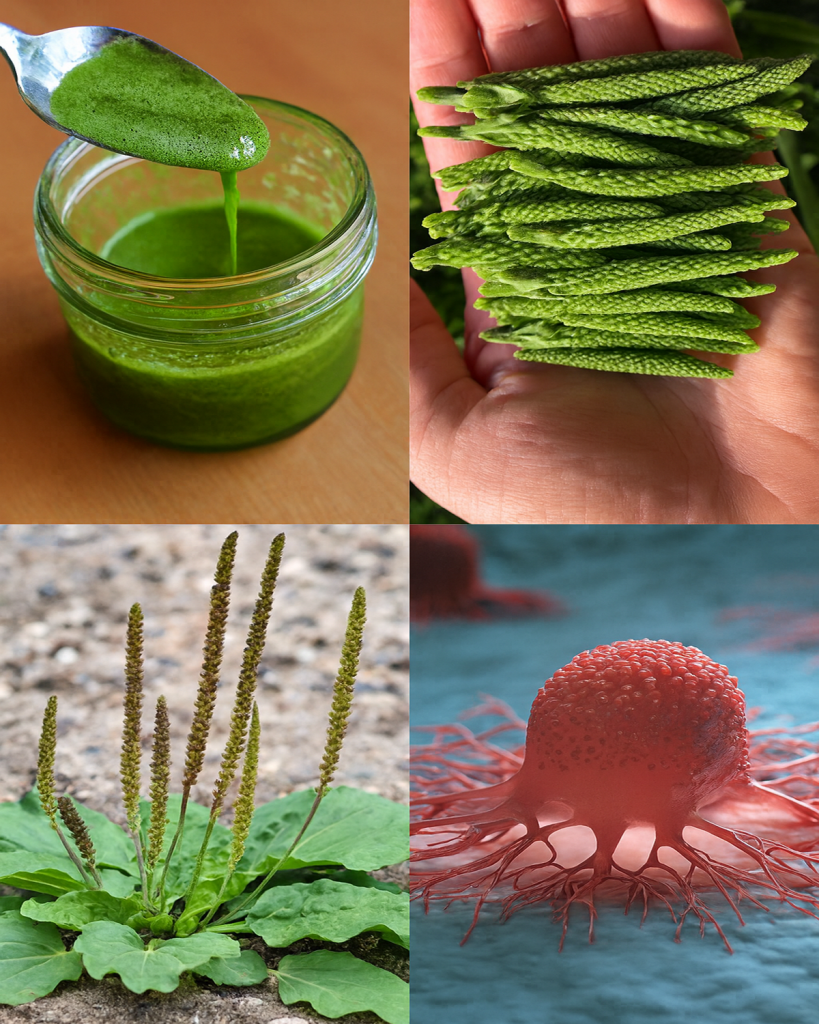
What Makes Plantago Major a Hidden Gem?
Plantago major belongs to the Plantaginaceae family and is one of the most widespread herbs on Earth. It grows in almost any soil and climate, making it accessible to nearly everyone.
Key Compounds Found in Plantago Major
- Aucubin: Known for its anti-inflammatory and antimicrobial effects
- Allantoin: Promotes tissue regeneration and skin healing
- Flavonoids: Provide antioxidant protection against cellular damage
- Mucilage: A soothing substance that calms irritated tissues
These natural compounds make the plant a multipurpose remedy, which explains its enduring presence in folk medicine traditions.
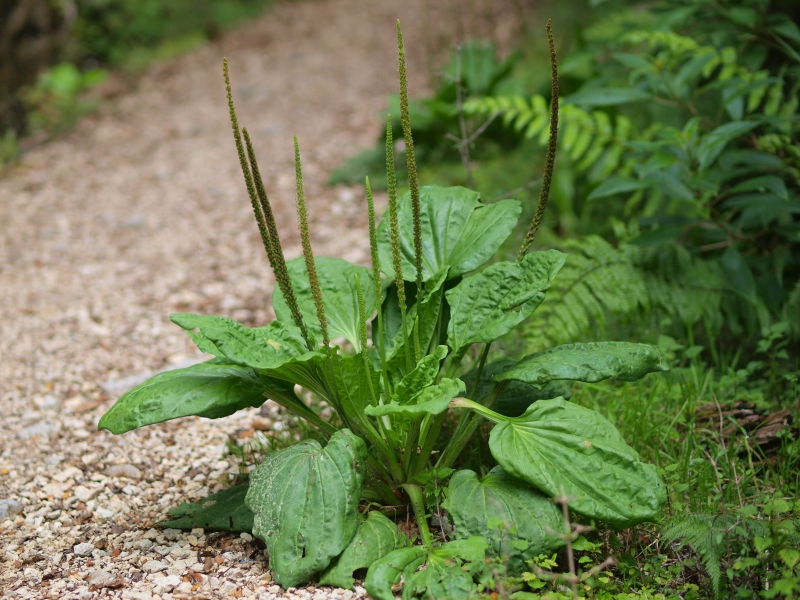
Health Benefits of Plantago Major
1. Wound Healing and Skin Care
For centuries, crushed leaves of Plantago major have been applied directly to cuts, scrapes, and insect bites. The allantoin content stimulates new cell growth, while aucubin fights bacteria, reducing the risk of infection.
Case study: Anna, a gardener in Oregon, uses fresh plantain leaves to soothe minor burns and scratches after working outdoors. She reports faster healing and less irritation compared to over-the-counter creams.
2. Soothing Digestive Discomfort
The mucilage in Plantago major forms a protective layer in the digestive tract, helping calm conditions such as gastritis, acid reflux, or mild ulcers. Herbal teas made from dried leaves are traditionally consumed to ease stomach upset.
Practical tip: Steep one teaspoon of dried Plantago leaves in hot water for 10 minutes. Drink slowly to help coat and calm the digestive lining.
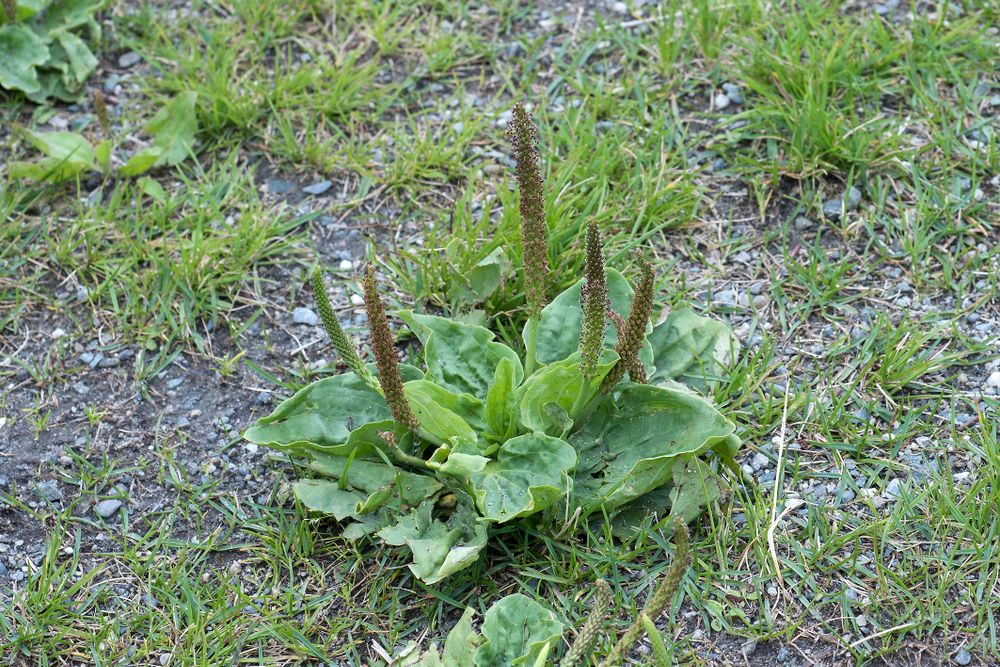
3. Respiratory Relief
Plantago major has long been used to treat coughs and respiratory irritation. The plant’s expectorant properties help loosen mucus, while its anti-inflammatory compounds calm the airways.
Example: In parts of Europe, Plantago syrups are sold as natural cough remedies, especially for children and older adults sensitive to synthetic medications.
4. Anti-Inflammatory Effects
Studies show that Plantago extracts reduce inflammation markers, making it helpful for conditions like arthritis, sore muscles, or skin irritation. Applying it topically or drinking it as tea may ease pain and swelling naturally.
5. Supporting Urinary and Kidney Health
Traditionally, Plantago major tea has been used as a mild diuretic, supporting urinary tract health by promoting fluid elimination and reducing irritation in the bladder and kidneys.
6. Natural First-Aid Herb for Everyday Life
Because of its abundance, many people use Plantago major as a go-to “first-aid” plant. It’s often applied to bee stings, mosquito bites, or rashes when nothing else is available. Its quick soothing effect has earned it the nickname “nature’s bandage.”
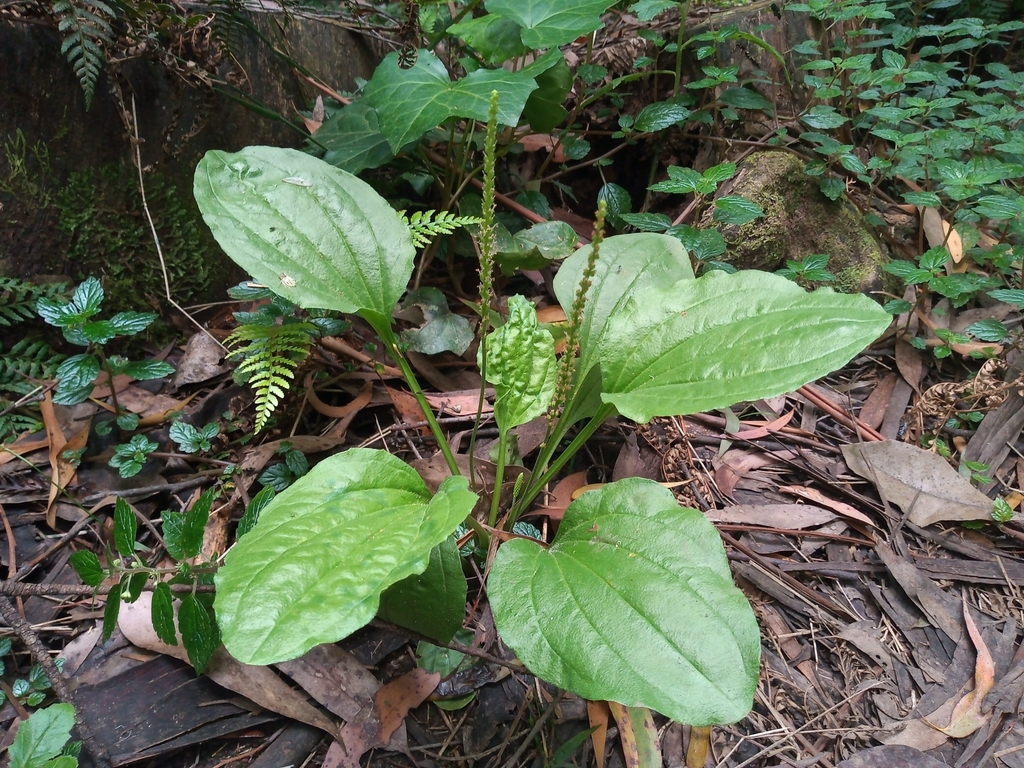
Comparison with Other Common Herbs
| Herb | Primary Benefit | Best Use Case |
|---|---|---|
| Plantago major | Anti-inflammatory, wound healing | Cuts, bites, digestion |
| Aloe vera | Skin hydration, burns | Sunburn, skin dryness |
| Chamomile | Calming, digestive aid | Anxiety, mild stomach upset |
| Peppermint | Cooling, digestive relief | Bloating, nausea |
How to Use Plantago Major Safely
- Fresh poultice: Crush fresh leaves and apply directly to cuts, insect bites, or skin irritations.
- Tea infusion: Steep dried leaves in hot water for digestive or respiratory support.
- Oil infusion: Prepare an oil extract by steeping dried leaves in olive oil for several weeks. Use for skin care or massage.
- Syrup: Combine Plantago tea with honey for a natural cough remedy.
Precautions
- Plantago is generally safe, but excessive intake may cause digestive upset.
- People with known allergies to Plantaginaceae plants should avoid it.
- Always consult a healthcare provider before combining it with prescription medications.
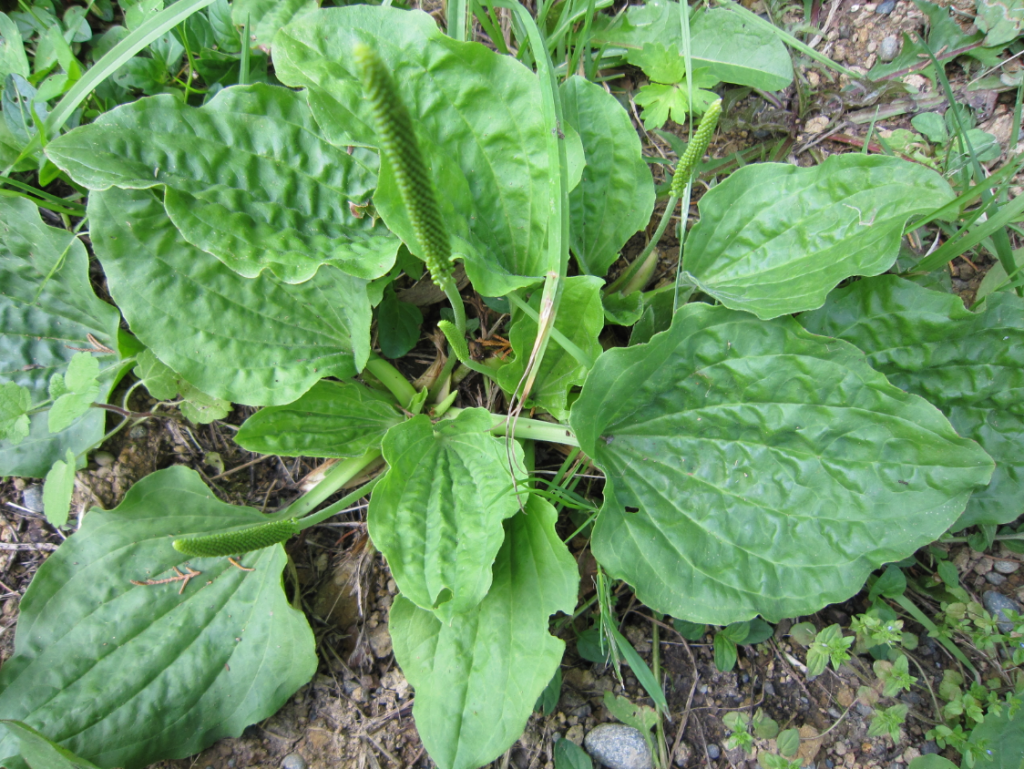
Real-Life Experiences with Plantago Major
- James, 57, North Carolina: “I started drinking Plantago tea when I had recurring acid reflux. Within weeks, I noticed less burning and fewer nighttime symptoms.”
- Laura, 34, UK: “My grandmother always used Plantago leaves for bee stings. I still use it today for my kids—it stops itching almost immediately.”
- Miguel, 61, Spain: “I had chronic coughs every winter. Since using Plantago syrup, my symptoms are milder, and I recover faster.”
Conclusion
Plantago major may look like a common weed, but its hidden power makes it one of nature’s most valuable allies. From healing wounds and calming digestion to soothing coughs and reducing inflammation, this unpretentious plant offers wide-ranging benefits that deserve more recognition. Accessible, affordable, and easy to use, Plantago major reminds us that some of the best remedies are found in plain sight.
Frequently Asked Questions
Can Plantago major replace prescribed medication?
No, it should be used as a supportive remedy, not a substitute for medical treatment.
Is it safe for children?
Yes, in small doses such as teas or syrups, but always consult a pediatrician first.
Can I grow Plantago major at home?
Yes, it grows easily in gardens, pots, or even wild patches of soil.
Does it have side effects?
Generally safe, but excessive amounts may cause mild digestive discomfort.
This article is for informational purposes only and does not replace professional medical advice.




